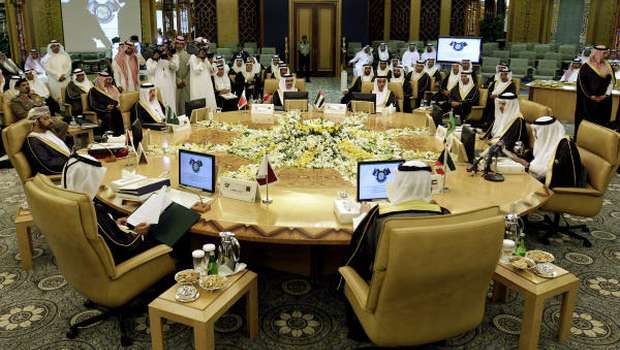The security of the Gulf, and particularly the Gulf Cooperation Council (GCC), is not structurally or ideologically under threat today. The current security landscape demonstrates that even the most dangerous of any potential threat is simply incapable of negatively impacting Gulf security to any degree of concern. Gulf security, as it stands today, is simply not susceptible to these dangers.
But what do we mean by a “structural” threat to the security of the Gulf? We mean threats that would directly or negatively affect the Gulf as a whole, or any components within the region, particularly the conventions and principles that underpin Gulf society.
The needs and interests of Gulf States are ensured through the framework of this security. Gulf security is based on preserving the regional integrity of the region; protecting the people and political systems of the Gulf. So long as these things are protected, the security of the Gulf cannot be threatened.
Security constitutes one of the main pillars and focuses of inter-Gulf interactions and the system in the region. This is based on the popular will of the people and the political ideology of the leadership. The Gulf security framework stems from the will and attitude of the regional states which share a moderate Islamic vision, deep historical ties and authentic Arab roots, interwoven with tribal identities. With the passage of time, this has led to the emergence of a sense of Gulf kinship, not just in terms of political ties, but rooted in the bonds between the various peoples of the Gulf. This Gulf identity is unique and has the ability to enhance and influence social development in the region as a whole, in addition to political and economic development. Therefore, we must support and strengthen this cohesion which underpins Gulf security to the point that it will be able to confront and deter dangerous views and ideologies which are alien to the people of the region.
So, whatever the nature of the threat that the security of the Gulf is facing today, or will confront in the future—structural, intellectual or otherwise—this will ultimately be unable to unduly affect the region.
Gulf security has a number of strengths that has enabled it to consistently and immediately overcome the successive threats that have menaced the region as soon as they appear. The Gulf is able to strongly confront and overcome these threats because security is based on obedience to the ruler. This is based on the region’s inherent principles and values and an embrace of urbanization, flexibility and openness, while also harnessing high-level experience in order to further fortify the Gulf against external threats.
In this case, one could say that Gulf security is based on the legacy, beliefs and principles of the people of the Gulf. The roots of this security can be found in the peoples’ convictions and vision. So even if structural or ideological threats do emerge, the Gulf is well equipped to address and overcome this.
In addition to this, Gulf security is based on the concept of progress, and a sense of understanding and coordination regarding common goals and interests. This explains the dynamism and vitality of Gulf security at its very core, which automatically works against anything and everything that deviates from the inherent culture of the region. Gulf security is not only able to overcome these threats, it is also able to learn from and understand them, ensuring that future threats can be dealt with even more easily. As a result of this, these threats are ultimately fleeting and doomed to failure.
So the security of the Gulf as a whole can never truly be under threat, regardless of the nature of these structural or ideological dangers it is facing. The Gulf region has many strengths that will always, whatever the circumstances, allow it to overcome these, such as the ability to harness knowledge and learn from past experiences, as well as enhance and develop the concept of shared security. It has mechanisms already in place that immunize it from such threats, whether they are threats it has faced before or new unprecedented ones.
The counterpoint to this article can be read here.
